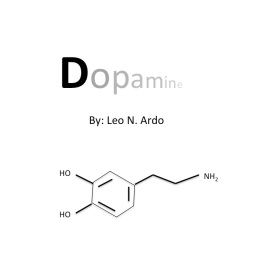 Douglas Lindquist founded Lindquist Plastics & Design fifteen years ago. He and two employees operated those three machines twenty-four hours, six-days a week. Douglas was a hard working, sincere, and logical owner that loved his employees. Problems were handled in a calm practical manner and as an opportunity to provide employee training. His employees were his extended family.
Douglas Lindquist founded Lindquist Plastics & Design fifteen years ago. He and two employees operated those three machines twenty-four hours, six-days a week. Douglas was a hard working, sincere, and logical owner that loved his employees. Problems were handled in a calm practical manner and as an opportunity to provide employee training. His employees were his extended family.
In three years Lindquist Plastics quadrupled its sales and capacity. The demands of the business forced Douglas to spend more time as the company president, and he performed engineering duties on the side—opening positions for a salesman, Bill Lewis, and an accountant, Raymond Heuter.
Bill was a personable salesman that established customer relationships quickly and did a masterful job of communicating “his” customers’ needs to production.
Raymond was a quiet person, but when he talked everyone listened. His deep voice added credibility to his thoughtful contributions. Everyone noticed Douglas went to Raymond’s office to discuss business behind closed doors. Raymond’s office was open to anyone, and as the company grew, he became the company “shrink.” The employees admired his honest nature and calm disposition.
A few months after Lindquist Plastics & Design had celebrated its tenth anniversary, Douglas began making four or five trips per day to Raymond’s office. The employees gathered in huddles and speculated what the abnormal behavior meant. Their curiosity was satisfied three months later when American Molding Enterprises (AME) arrived at the facility to announce their intentions to purchase Lindquist Plastics.
Fear became part of the employees’ environment: “Will AME lay me off?”, “Are they going to reduce my pay?”, “What are they going to do with the benefits?”, and “Will they close us down and move the equipment to their plant in Indiana?”
It was during a consoling session with the risk-adverse buyer that Raymond first noticed the twitch in his right thumb. If he held his hand in certain positions, the thumb would vibrate slightly. After the session, he placed his hand, palm down, on the desk. The thumb vibrated wildly.
The soonest he could see his doctor was next Tuesday. The time went by fast as Raymond, Douglas, and three AME directors poured through the Lindquist Plastics financial statements, production reports, and sales plans. They worked through the weekend at the office, and Raymond took work home each day to stay ahead of the three directors. On Saturday afternoon, he noticed his handwriting was curving up to the right and growing smaller with each letter. Sunday evening Raymond’s wife, Gwen, got mad, saying, “You are working too hard. Your voice is even tired.”
By Monday, the intense meetings were beginning to take their toll on everyone. Douglas suggested they quit early on Monday and arrive late tomorrow to “Make up for leaving early today!” They had a chuckle and agreed to start at 10:00 a.m. tomorrow.
After the AME team departed, Douglas went to Raymond’s office.
“So, will the 10 a.m. start give you enough time?” Douglas asked. “Because, I can drag it out if you need more time.”
“The doc has two hours. That should be enough time. Thanks for helping me out,” Raymond replied.
“No problem. Leave the work here tonight. If they have to spend an extra day, so be it.”

Raymond did not sleep that night. All the stress, long hours, and concern about his vibrating thumb had him on the brink of exhaustion. After the nurse escorted him to the examining room, he fell asleep on the examining table. Startled when the doctor opened the door, he apologized for sleeping. The exam lasted ninety minutes. It was the craziest exam he had ever experienced: tapping his thumbs and first fingers, turning his hands about the wrist, stomping his feet on the floor, and flexing his fingers in and out.
“Raymond, I think you have Parkinson’s disease,” the doctor stated. “It explains the tremor on only your right thumb, the insomnia, lack of energy, and the stiffness in your right arm and leg. Has your writing changed lately? Do people ask you to repeat a lot?”
“Yes, and yes.”
“Let’s get you an appointment with a neurologist. I had the nurse call. If we do it, they might schedule you sooner.”
Parkinson’s disease. The last ounce of vitality left Raymond like a right jab from Mohammad Ali. With the little energy he had left he requested confirmation, “Doc, are you sure it’s Parkinson’s?”
“Pretty sure, but let’s wait until a specialist examines you. I could be mistaken. It might be familial tremors. But the movement of your right side seems to be impaired compared to your left side. Tremors typically show in both sides.”
“What do I need to do between now and the appointment?”
“Nothing. But, I recommend you start figuring out how to improve your sleep and reduce the stress in your life.” There was a knock on the door. “Come in.”
The nurse handed a small card to Raymond, indicating his appointment at the neurology clinic for 3:00 p.m. next Thursday.
Raymond drove back to work, his mind jumping randomly between Parkinson’s disease, AME directors, Parkinson’s disease, telling his wife, Parkinson’s disease, and telling Douglas. What does this mean to my wife, my family, my job . . . ?
He arrived at the office at 9:55—enough time to gather his reports, binder, and computer. Douglas could tell by Raymond’s posture and stone face that the doctor visit was not good.
The refreshed AME directors were in a good mood and kept the meetings moving along. There was even a joke now and then. Raymond was able to focus on the AME information needs and was surprised at 4:30 p.m. when the AME team said they had all they needed and could use a taxi. Douglas instructed Bill Lewis to drive them to the airport.
Douglas locked the conference room door before he asked, “What did the doctor say?”
“He think’s it might be Parkinson’s,” Raymond replied.
“When do the test results come back?”
Raymond chuckled briefly before he explained, “There is no diagnostic test. It’s all an educated judgment based on a bunch of hand movements, foot stomping, the doctor’s knowledge, and the doctor moving your limbs about. It’s kind of comical if you don’t think about it too much.”
“Raymond, we will work with you. Just let us know what to do.”
“Thanks, Douglas, I really appreciate your support.”
They had worked together for seven years. Douglas knew it was better to direct the conversation toward the AME purchase proposal. It was too early to have a productive conversation about Raymond’s potential diagnosis, and it was better, for now, to keep Raymond’s mind busy.
* * * * *
Thursday, 3:45 p.m. The nurse had drawn blood to eliminate other possible Parkinson’s-like conditions. The neurologist put Raymond through a battery of movement challenges.
“We have one more test we would like to do,” the neurologist requested. “We have some drug kits for you to take home and try for a couple weeks. If it’s Parkinson’s the kits will make you feel better. If it’s not, you will still notice the thumb tremor. Come back in ten days so we can discuss your reaction to the test kit.”
“What’s your thinking?” Raymond asked.
“I am 95% positive you have early onset Parkinson’s. You are young enough to slow the progression with medication, sleep, diet, and exercise.”
“How will this affect my life?”
“Uncertain. Everyone’s journey is different. One good thing is—if you want to classify it as good—early onset PD typically progresses slower than Parkinson’s developed later in life. You could have a reasonably normal life for fifteen to twenty years on medication.”
“Who should I tell?”
“That’s your call. Some people tell everyone, some people tell no one. Do what you think is best.” The doctor waited to see if Raymond had other questions. “Okay,
let me get you a test kit. The nurse will help you with the instructions in the box. See you in ten days. Have the nurse give you the contact card for new patients, in case there is an emergency.”
On the drive back home, Raymond stopped at the park near his home and walked for eighty minutes before it started to rain. That evening at dinner he told Gwen and their two sons. The conversation lasted more than two hours as they looked up information on the Internet together. Raymond wrote down all the unanswered questions for the neurologist. Raymond invited Gwen and the boys to his next appointment.
At nine o’clock the phone rang. It was Douglas. “Hello, Raymond. What did he doctor say?”
“It looks like early onset Parkinson’s disease. The doctor thinks I might have twenty good years with medication. I have a test kit to try for the next two weeks. The kit is the last piece of the puzzle for the doctor,” Raymond answered.
“Take tomorrow off. We can discuss what you want to do about work on Monday. Do you need anything? Can I help in anyway?”
“Everything is fine.” Raymond paused for a few seconds then added, “Douglas, I would like to keep this a private matter.”
“No problem. See you Monday.”
* * * * *
The business marriage between Lindquist Plastics and American Molding Enterprises was approaching its fifth anniversary. The two businesses had benefitted from their relationship in the early days, but as time passed, it was more difficult for both groups to find common ground.
AME was having similar problems with other companies they had purchased. The AME board decided to replace the president with Benjamin Patterson whose reputation was that of a blunt bulldog with a take-no-prisoners management style. For Benjamin, nothing was out of bounds, or spared his scrutiny. His previous employer was on the verge of extinction before they promoted Benjamin to president. In six months they were recording profits and had avoided bankruptcy.
Benjamin was making his first visit to Lindquist Plastics tomorrow.
Raymond knew he was making a mistake, but his addiction to make a good impression with the new boss impaired his judgment. The perfect storm was headed for Raymond. He’d only had a protein bar for dinner, it was 10:00 p.m. with a 45-minute drive to home, his stress level was increasing as the Benjamin Patterson meeting approached, and his medication “on” period was shortening. Then, there was the conversation with Douglas earlier today.

“Benjamin is going to insist we furlough four to six staff members. I am not suggesting anything, but have you decided what your plans are for working, retirement, or consulting?”
“I would like to continue working as long as I can contribute. We need a little more money before I retire.” Raymond thought, then added, “Are you trying to tell me something?”
“Oh no. I want to have you here in some capacity. Just wanting to know how we should present staffing in the accounting department. Benjamin will go after your bigger salary and recommend we promote Sally to your job.”
He thought about the progression of the Parkinson’s disease taking control of his body like the compound interest calculations he performed each month. Every day, something makes it more difficult: more medication, more difficulty with fine motor skills, more insomnia, more symptoms in the mix . . . Lately there is the depression which I have not discussed with anyone—Gwen doesn’t even know. Is this fair to Gwen? Maybe I should consider part-time?
Wednesday, 4:06 a.m. Five hours to Benjamin. Raymond’s total sleep was about two and a half hours in several ten- or fifteen-minute naps. He was already exhausted.
4:57 a.m. Four hours to Benjamin. Raymond takes his medication. It’s the first of four doses.
5:27 a.m. Three and a half hours to Benjamin. The presentation slides look good. He made a couple corrections to the script. He decides to do some stretching to loosen up his stiff muscles.
6:10 a.m. Less than three hours to Benjamin. Breakfast was two eggs, one toast with jelly, and a banana. Gwen entered the kitchen and sighed when she saw the coffee pot was empty. Raymond apologized, “I am sorry. I forgot to make the coffee.” In his mind he asked the same questions: Is this really fair to Gwen? Maybe I should work part-time? I could help out around the house to make Gwen’s life easier. After the meetings with Benjamin I will have a better idea of what to do.
7:07 a.m. Two hours to Benjamin. Raymond cranked up the hot water in the shower to relax his aching, stiff muscles. He practiced his presentation while the heat from the water penetrated his body.
7:52 a.m. One hour to Benjamin. Raymond shivered in the car while he waited for the heat to replace the cold air. In two months he had developed an uncontrollable shaking when his body was cold. He decided he should not drive while his body wasn’t under his complete control.
8:40 a.m. Twenty minutes to go. There was a strange car in the visitor’s parking stall. He is already here!
8:44 a.m. Fifteen minutes to go. As Raymond entered his office, he saw Benjamin in Douglas’s office. Benjamin was pacing, and his gestures were exaggerated. Occasionally, Douglas would roll his eyes when Benjamin turned away. Raymond’s stress level increased as he thought, Benjamin must be off the mark if Douglas is rolling his eyes. Benjamin made eye contact with Raymond and checked his watch. A twinge of paranoia rippled through Raymond’s body.
8:54 a.m. Six minutes. Raymond thought, It will be ten minutes before everyone was seated. The room was silent except for Benjamin talking on his cell phone.
8:58 a.m. He forgot to take the Levadopa tablet. Raymond had planned to take his second dose before the meeting. It was earlier than his regular schedule, but he wanted to be at full capacity during his presentation. He was about to take a quick trip to his office when Benjamin ended the call.
“Gotta go, I’ll call you later when we have a plan.” He pressed the end button, set the phone on the table, and began, “Good morning. I would like to start with a little story about my grandpa. He was a dirt farmer in the Texas panhandle. Grew mostly wheat and cotton. When times were tough, he had to make hard decisions about how to manage their meager funds. When times were good, I knew, because he would give me seventy-five cents for a show and popcorn.” As the tardy team members entered during the introduction, Benjamin would point at an empty chair. He wanted everyone to know he was in control. “Well, times are tough, and we need to decide how to manage our meager funds. I am here today to work with you on reducing our overhead and staff so that money can be used in manufacturing. Raymond, you’re up.”
The presentation went well for about twenty minutes, then the medication’s effectiveness began to wane. Raymond’s body was battling the stress by consuming dopamine at a serous rate as it was converted to adrenaline. Douglas knew what was happening to Raymond and glanced over to see Benjamin lift the top page on the tablet, write something, then put the top page back. Aware of the early warning symptoms, Raymond pushed to finish the presentation.
Benjamin thanked Raymond without eye contact, picked up the agenda, and said to Bill Lewis, “Okay Bill, you’re up.”
Raymond left the conference room to take his medication.
Benjamin made another note on page two of his tablet.
The meeting continued into the lunch hour. When the group split up to eat, Benjamin and Douglas were alone in the conference room.
Benjamin asked, “Why do you need Raymond? He is doing a good job, but can’t we promote Sally the controller and get the job done for less? He has a sizeable salary. Did you hear the shaking in his voice this morning?” Bill Lewis entered the room. Benjamin said, “We can continue this later this afternoon.”
The afternoon meetings were conducted in smaller groups but were more intense. The mid-afternoon break was delayed to finish the draft of the new business plan. Raymond was an hour past due for medication. His hands were slow and shaking as he tried to keep up with the discussion. The mistakes were projected onto the screen from his laptop, and he was scolded each time Benjamin found a mistake—more stress, more adrenaline, and less dopamine. His symptoms were almost in full bloom, and he could feel the scrutiny targeted at him from Benjamin. He was finding it difficult to keep up with the multiple conversations, his focus was impaired, and his voice was nearly inaudible.
At the break, Benjamin waited a minute then wandered toward Raymond’s office. He was about to enter when he saw, through the gap between the window blinds and frame, the bottle of medication on Raymond’s desk. A bottle he knew all to well—Levadopa. Just like Angie, his wife. Raymond had Parkinson’s disease.
He stared a minute at the bottle, then began walking toward Douglas’s office. He thought about how his wife, with great desire and effort, worked to be normal, the tremendous effort she mustered each day to keep Parkinson’s under control, and the sacrifices she made to rest her body.
He entered Douglas’s office. Douglas asked, “Do you want to finish your discussion about Raymond?”
“No. Were you going to tell me about Raymond’s Parkinson’s?”
Douglas let the question float in the air for a few seconds. “Did he tell you?”
“No. I saw the medication on his desk. Same stuff my wife takes. I completely understand. He is functioning at the level that we need, but I am guessing he is working way too hard to keep up. He must be dead tired preparing for this meeting. What can we do that would benefit him and us?”
Douglas had an answer, but the surprise turnabout from Benjamin caught him off guard.
“Here is what I suggest . . .”
* * * * *
Benjamin was in the conference room preparing for his quarterly review at Lindquist Plastics. Sally, the new finance director was visibly frantic. She was about to make her second presentation to Benjamin, and the first one had not gone well.
“Sally, relax. You know this stuff. You are doing a great job. He will notice the difference,” Raymond said to calm her.
Benjamin walked into Sally’s office. “What he said. You know this stuff, and I am happy with the progress we are making. I’ll see you in the conference room.”
There was an awkward moment while Sally realized that that was her queue to leave.
“Yes, see you in the conference room,” she acknowledged.
She closed the door as she left.
“How are you doing?” Benjamin asked.
“Good. Started biking again. That really helps,” Raymond replied.
“It really helps Amy. I can tell the difference if she misses a day. She started kettle ball classes a few weeks ago. So . . . How long are you here today?”
“Until two o’clock.”
“Think you can make it until four or five? I would like your perspective. And you have a calming effect on Sally.”
“I’d be happy to. No problem!”
__________________________________________________________________________________

Leo N. Ardo: – I am a thirty-five year veteran of small business, and author of the Jon Hersey – Industrial Spy series. I enjoy photography, fly fishing, biking, and embellishing our travel experiences in journals titled Exaggerated Tales of an Ordinary Man.
We call Utah and Wyoming home.
Visit our website www.LeonardoStories.com
Blog: LeonardoStories.wordpress.com
Like us at Facebook.com/TheLeonardoStories
Follow us on Twitter @LeonardoStories
Hoping life blesses you with good stories!
 Hoping life blesses you with good stories!
Hoping life blesses you with good stories! 
















